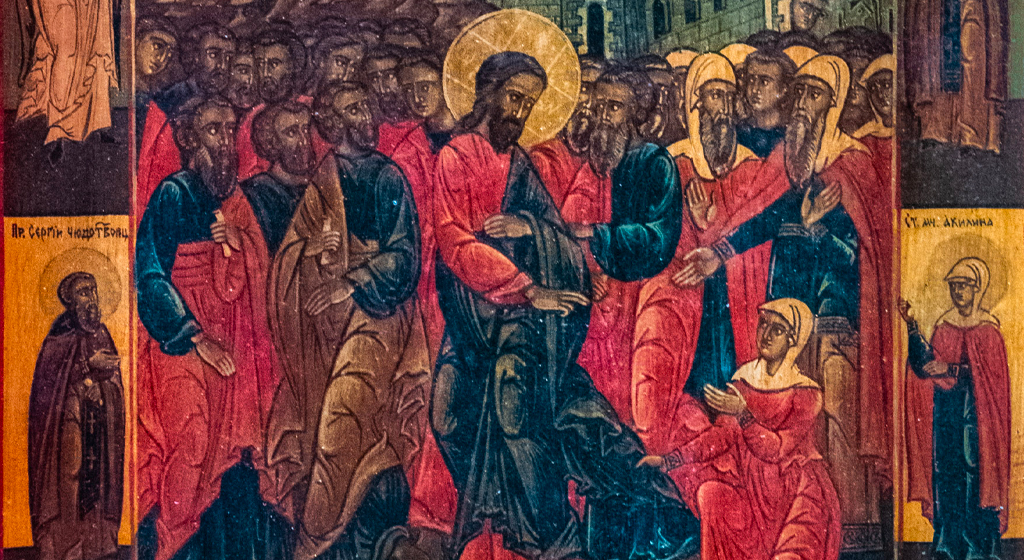Memory of the Poor
Reading of the Word of God
Alleluia, alleluia, alleluia
This is the Gospel of the poor,
liberation for the imprisoned,
sight for the blind,
freedom for the oppressed.
Alleluia, alleluia, alleluia
Matthew 17,22-27
When they were together in Galilee, Jesus said to them, 'The Son of man is going to be delivered into the power of men; they will put him to death, and on the third day he will be raised up again.' And a great sadness came over them. When they reached Capernaum, the collectors of the half-shekel came to Peter and said, 'Does your master not pay the half-shekel?' 'Yes,' he replied, and went into the house. But before he could speak, Jesus said, 'Simon, what is your opinion? From whom do earthly kings take toll or tribute? From their sons or from foreigners?' And when he replied, 'From foreigners,' Jesus said, 'Well then, the sons are exempt. However, so that we shall not be the downfall of others, go to the lake and cast a hook; take the first fish that rises, open its mouth and there you will find a shekel; take it and give it to them for me and for yourself.'
Alleluia, alleluia, alleluia
The Son of Man came to serve,
whoever wants to be great
should become servant of all.
Alleluia, alleluia, alleluia
For the second time Jesus tells the disciples what awaits him there: he will be handed over into the hands of the leaders of the people and put to death, but then he will be raised. And once again, upon hearing this, the disciples are dismayed. They truly struggle to embrace the idea of a suffering Messiah, even though the prophecy promises resurrection. It is a struggle we, too, know well. How we hear only what we want without allowing the Word spoken to us to involve us! While returning to Capernaum, a few collectors of the temple tax approach Peter and ask if Jesus will pay the temple tax. In this case, the question is not about paying taxes to Caesar, but about paying a contribution all Israelites must pay for the functioning of the temple. Although he is "greater than the temple" (Mt 12:6), Jesus does not neglect this duty and tells Peter to take from the mouth of a fish he catches the silver coin he finds there to donate it to the temple. Jesus does not want to cause a scandal. He came to build up, and not scandalize, the people. Hence Jesus acts differently from how would be licit for him to act. Along the same line, to the pretense of the Corinthians who said: "All things are lawful!" the Apostle Paul responds: "All things are lawful', but not all things build up. Do not seek your own advantage, but that of others." (1 Cor 10:23-24). Jesus' first concern is to gather and care for all those the Father entrusted to him. This is why Jesus is careful in avoiding useless scandals. This wisdom requires a great deal of interior discipline, above all on the part of those who have pastoral responsibilities. We must avoid the impulse to act impulsively without reflecting. The Lord shows us that true wisdom is constructing the spiritual temple that is the Christian community.
